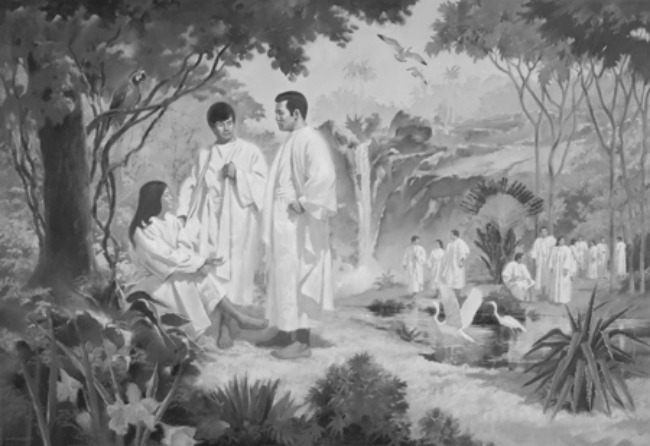Question
Gramps,
Do people miss their mortal life?
Maggie
Answer
Maggie,
Upon death, individuals enter the spirit world, a realm of continued learning and progression. Contrary to some beliefs that depict the afterlife as a static existence, The Church of Jesus Christ of Latter-day Saints teaches that the spirit world is an active and dynamic place. Here, spirits await the resurrection and final judgment, events central to Latter-day Saint eschatology.
In the spirit world, spirits continue to teach and learn, engaging in activities that reflect their desires and personalities. This post-mortal existence is not a mere pause but an extension of the eternal progression initiated in the pre-mortal state and continued during mortality. The teachings suggest that while souls are content in the spirit world, the uniqueness of mortal experiences leaves an indelible mark, imparting memories and emotions that persist beyond death.
Personal testimonies and teachings within the Church of Jesus Christ indicate that souls do, in fact, reflect fondly on their mortal experiences. Leaders of the Church have shared insights suggesting that individuals may miss certain aspects of mortal life, such as relationships, personal growth opportunities, and the dynamic nature of earthly existence.
However, this longing does not stem from a desire to return to mortality permanently. Instead, it reflects an appreciation for the unique challenges and joys that mortal life offers. The experiences gained during mortality are invaluable, shaping individuals for their eternal progression. This nuanced understanding emphasizes that while souls cherish their mortal memories, their ultimate focus remains on progress and preparation for the eternal life to come.
Central to Latter-day Saints’ teachings is the belief in Jesus Christ’s atonement, which provides the way for all souls to achieve resurrection and eventual exaltation. The atoning sacrifice is not just a redemptive act for those in mortality but extends to all of God’s children, including those who lived in pre-mortal existence or on other worlds.
The influence of Christ’s atonement ensures that every soul has the opportunity to receive salvation and participate in the divine potential of becoming like God. This overarching plan reinforces the belief that every phase of existence—pre-mortal, mortal, and post-mortal—serves a divine purpose in the eternal progression of the soul [8].
Understanding whether souls miss their mortal lives leads to a deeper appreciation of the Church’s emphasis on living a righteous and purposeful mortal life. The teachings encourage members to live with an eternal perspective, valuing their earthly experiences as essential steps toward eternal glory.
By aligning daily actions with eternal principles, individuals can ensure that their mortal lives are fulfilling and set the foundation for continued progression after death. This approach fosters a sense of peace and contentment, knowing that mortality is a cherished and purposeful phase in the grand tapestry of eternal life.
Gramps







